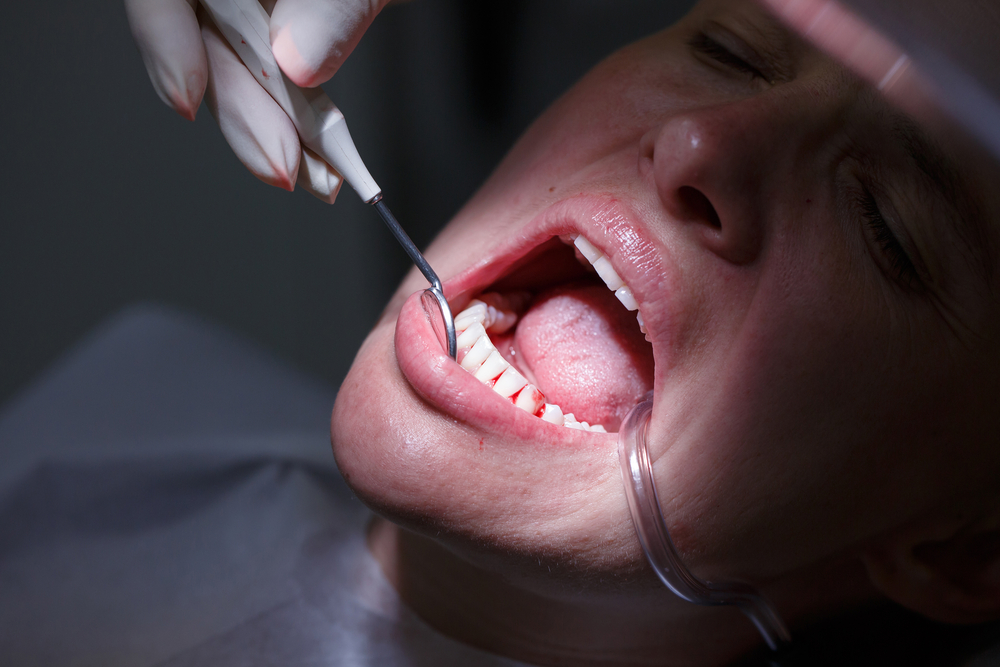Fix Receding Gums Without Surgery
The abscess is a collection of pus (bacteria, white blood cells, plasma and cellular debris) due to a bacterial illness which may be formed in any tissue of this organism, including gums, teeth, and even the bone on the tooth lies.
How to Fix Receding Gums Without Surgery?
There are two Major types of dental abscess:
- periodontal in case it affects the Periodontal, ie gingiva, ligament or bone,
- periapical in case it strikes the pulp (generally it is a consequence of caries).
We remember the gingival abscess, which is the most complex type of the dental abscess which develops directly in the gum as a result of infectious procedures. For more, visit us: Fix Receding Gums
Signs of a dental abscess are:
Intense throbbing pain, which can manifest suddenly and progressively worsen,
Redness and swelling from the face area,
Gums reddened and swollen,
Sensitivity to cold and heat,
Halitosis and poor taste in the moutharea,
Stress at many severe circumstances.
They are normally quite painful, but require medical care no matter, to prevent annoying and dangerous complications.
Regrow Receding Gums Without Surgery
Causes
The mouth is usually full of bacteria, but under certain conditions can produce an adhesive film on the teeth called plaque.
Particularly in the lack of correct and regular Dental hygiene, acids produced by plaque bacteria can harm teeth and gums, leading to the onset of caries or Gum disease.
These conditions can hence predispose into the overall look of a dental abscess.
Risk variables
Poor oral hygiene, as plaque could accumulate more easily on Tooth;
High usage of food and drinks;
Pre existing dental problems or unsuccessful surgical interventions, that may act as an entry point to bacteria through damaged tooth and gum parts;
weakened immune system
alcoholism,
Smoke
Stop Receding Gums Without Surgery
Symptoms
The primary symptoms of a dental abscess are:
Intense pain which impacts the gum and tooth;
It can manifest suddenly and generally tends to a radical worsening;
The pain can also affect the ear, both the jaw and even the neck on precisely the same facet of the affected tooth;
The pain dissipates at a lying posture and may stop sleep;
It becomes worse at night and becomes more excruciating in case of pressure;
Redness and swelling at the face area;
Reddish teeth, bloated and bloated;
Sensitivity to cold / heat;
Poor breath and a unpleasant taste in the mouth area;
Enlarged lymph nodes on the affected side;

How to Treat Receding Gums Without Surgery?
migraine.
In the event the infection spreads, fever and widespread malaise may also grow. In acute instances , it may be hard to start your mouth completely and may become difficult to breathe or absorb.
When to call the doctor?
Speak to the dentist at the earliest signs of abscess, without waiting. In case of acute swelling and fever in the event the dentist cannot be contacted, please speak to with the emergency section; go right towards the PS incase there is problems with breathing or swallowing (symptoms of an even more in-depth diffusion of this illness ).
Diagnosis
Generally speaking, a health examination or monitoring of symptoms is adequate for identification, but instrumental analysis (radiography, computed tomography ) might sometimes be required.
Complications
A dental abscess consistently takes treatment, it won't be solved by it self. If the abscess is broken, the pain can fall considerably, but nonetheless dental treatment remains crucial.
An untreated infection can spread into the bones and areas of the top and neck, risking serious complications such as sepsis (a life-threatening infection that spreads through the entire human body ).
Can Receding Gums Be Fixed?
Care
In the case of abscess, it's critical to contact the dentist when possible.
Avoid too cold or hot foods when the pain worsens;
Consider eating soft foods, if possible, employing the other side of your mouth;
Use a soft brush and then temporarily avoid the use of dental floss around tooth;
Rinse with hot water and salt.
These measures may help relieve symptoms but do NOT replace the specialist trip.
Following a trip and the diagnosis that the dentist will have the ability to indicate different therapeutic options; in general antibiotic therapy is adequate but, depending on the circumstance, it might be mandatory: removal of those affected tooth (extraction), devitalization, incision and drainage.
How to Reverse Receding Gums Without Surgery?
Prevention
It's likely to reduce the risk of developing dental abscesses by doing everything possible to maintain your teeth and gums as healthy as you can; To do this, you'll need:
Brush your own teeth using natural toothpaste twice per day, brushing for two successive minutes;
Avoid rinsing the mouth with plain water or mouthwash after cleansing, not to get rid of the toothpaste: simply spit from the excess;
Replace the brush every three to four months, or any way when the bristles are frayed;
Reduce sugars and candies drinks, particularly between meals and before you go to sleep at the evening;
Visit your dentist regularly, intending a routine and normal scaling.